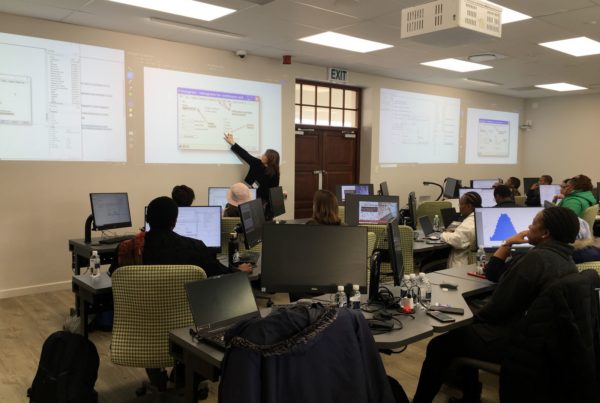RESEP was again privileged to host its annual QER conference at STIAS from 31 August to 1 September 2022. There is much value in bringing together academics, government, NGOs and funders involved in education improvement in South Africa. Two days of new research, engaging panels and critical questioning reminded us of how much work there is to be done, while also revealing the advancement in collaboration that has been made across research and government work.
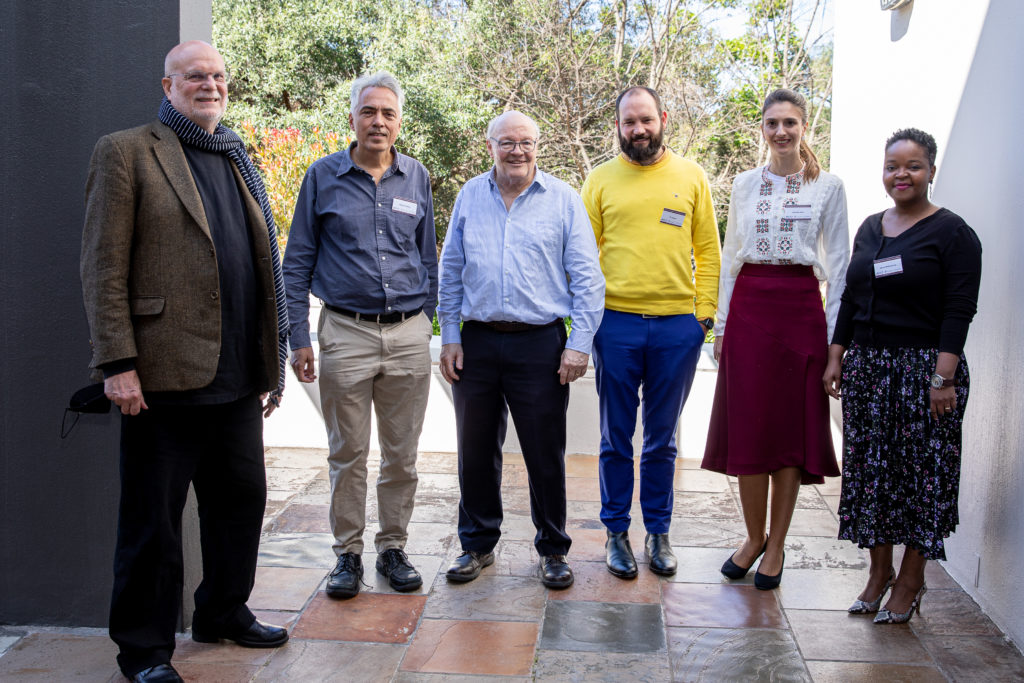
From left to right: Luis Crouch, Menno Pradhan, Servaas van der Berg, Nic Spaull, Gabrielle Wills, and Nompumelelo Mohohlwane
Servaas van der Berg (RESEP, SU) kicked off the first day with an overview of key educational issues in the present climate, setting a platform for key themes and topics to be covered in more detail as the conference unfolded (download slides).
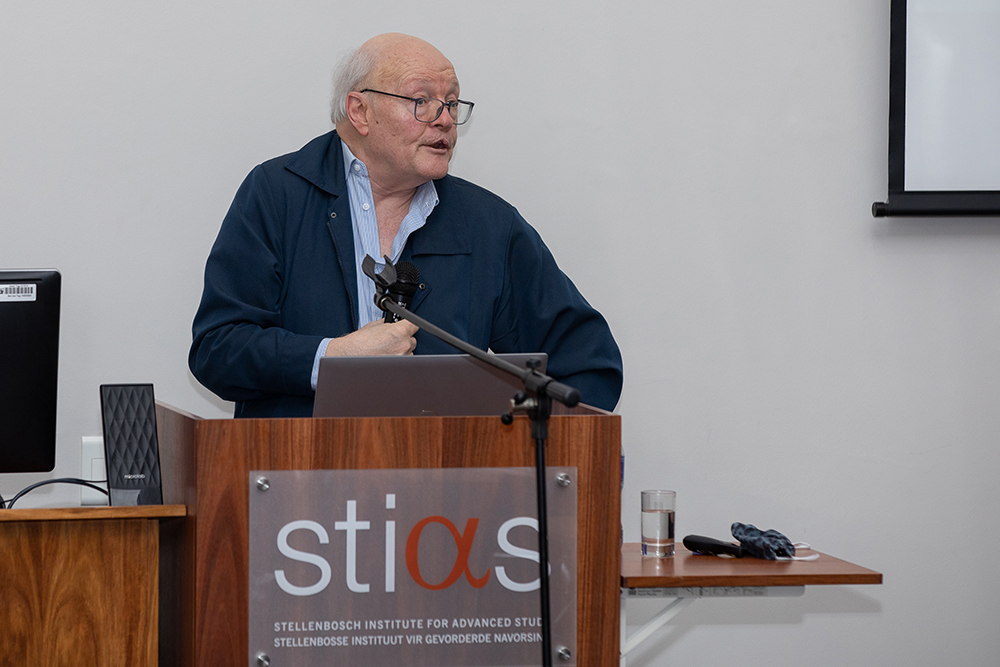
Servaas van der Berg
The first key theme was about Covid-19 impacts on the education system. Learning losses as discussed in the release of the 2021 Western Cape Systemic Tests have been very large. Ursula Hoadley (UCT) took up this discussion later, getting into the details of Western Cape losses on a subject and topic level, while Vijay Reddy (HSRC) considered what these losses may mean for South Africa’s performance in TIMSS (download slides). Nompumelelo Mohohlwane (DBE) reviewed what we have learned about Covid-19 related losses in reading development (download slides).

Menno Pradhan
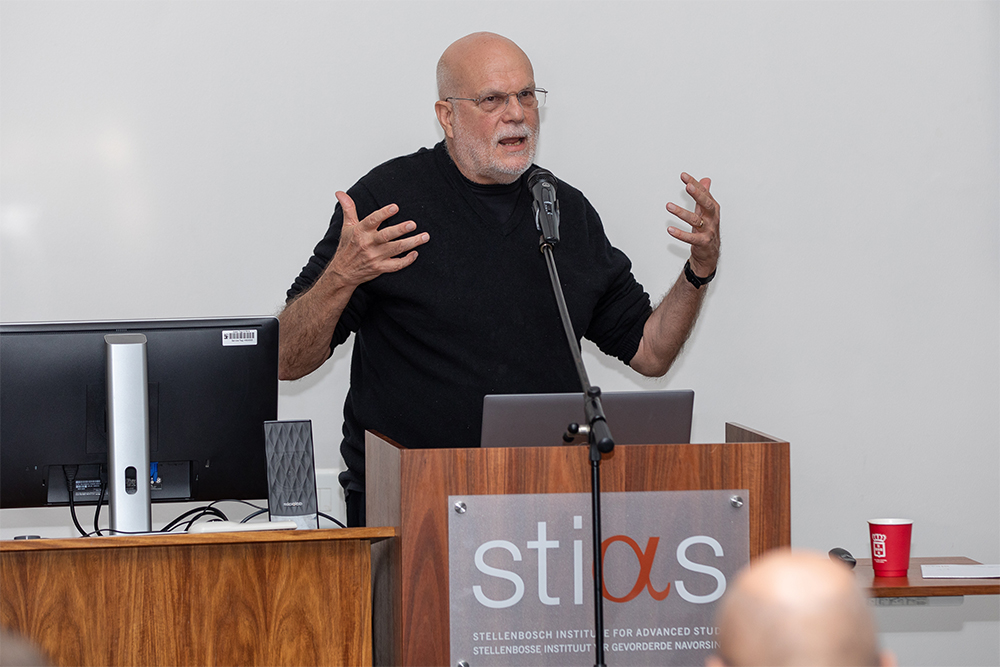
Luis Crouch
As Luis Crouch (RTI International, Emeritus), our invited international guest reflected, we have to take these learning losses “very seriously”. Losses in the early grades, particularly among current Grade 3s (who lost out on half of their Grade 1 and 2 years), are acute (download slides). Adding to this concern, Gabrielle Wills (RESEP, SU) was able to show empirically that the extent to which children master basic reading skills in Grades 1 and 2 will set the trajectory for whether children do or do not reach adequate fluency and comprehension levels by the time they finish primary schools (download slides). This point was reiterated by Nic Spaull (Resep, SU & AGGP), who used data to reflect on poorly developed numeracy and reading skills in the Foundation Phase, while also showing that policy prioritization matters for shaping a focus on learning (download slides).
Servaas van der Berg also highlighted how Covid disruptions have dramatically altered patterns of flows (including repetition) in the education system, with much lower repetition rates at all grade levels (and particularly in the FET phase) reported in 2020 and 2021 (download slides).
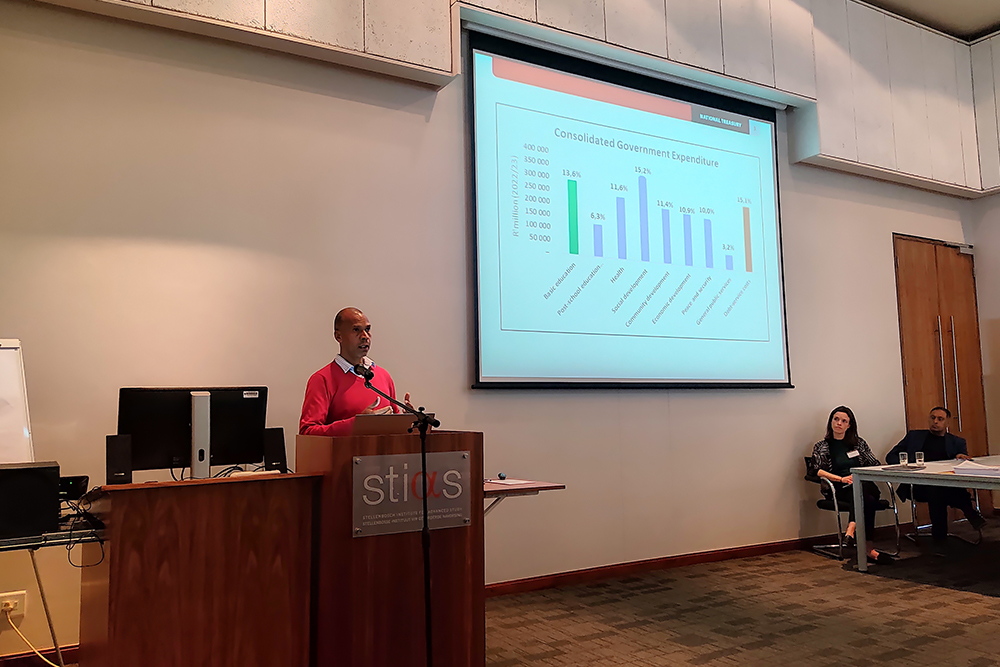
Spencer Janari
Related to Covid impacts on the economy, but also due to broader structural economy weaknesses, a sobering set of presentations on state budgets, and financing for education were presented by Helanya Fourie (BER, SU), Spencer Janari (Treasury) and Albert Chanee (GDE). Helanya Fourie provided a broad economic overview of key reasons for budget pressures in South Africa, highlighting rising debt servicing costs (coupled with weak economic growth) that are crowding out critical expenditure on amongst other things, health and education (download slides). Spencer Janari then got into details of the national budget for education, highlighting key cuts in spending (download slides). Albert Chanee reflected on the implications of squeezed budgets and inflationary pressures on key strategic areas for Gauteng education service delivery (download slides).
Presentations by both Servaas van der Berg and Nic Spaull drew attention to the looming challenge of a teacher retirement wave. In addition to increasing the throughput of new graduates through Initial Teacher Education programmes, innovative and flexible approaches will be needed to address the shortages that will be experienced in the next ten years.
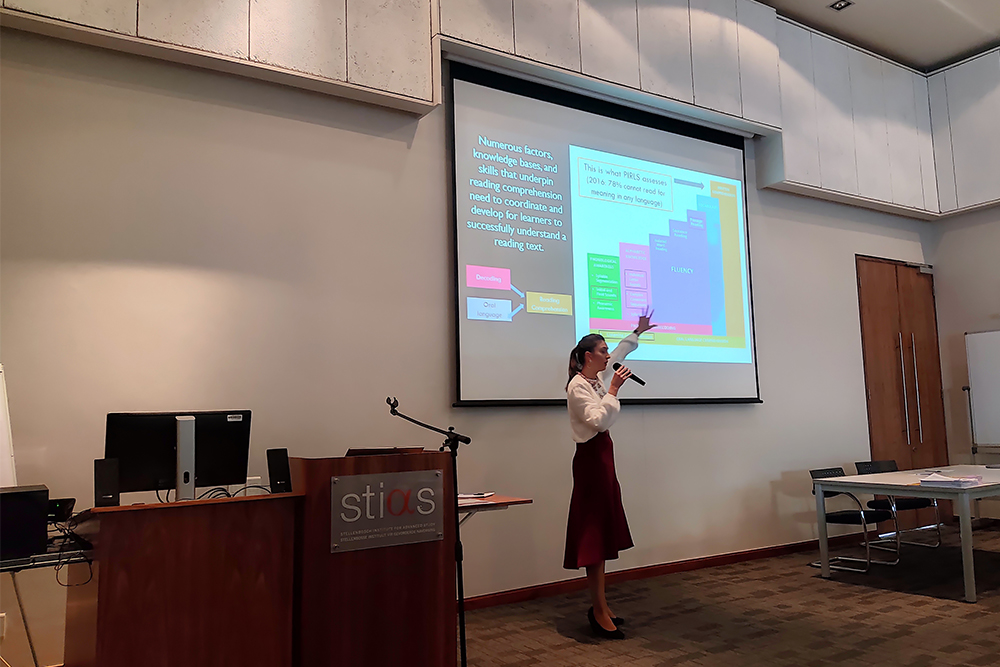
Gabrielle Wills
While some presentations used evidence to articulate key challenges being faced in the education sector, others were solution-orientated. Our invited international guest, Menno Pradhan (VU & UvA) provided an overview of three very interesting interventions to assess educational policies for learning enhancement in the developing country context of Indonesia (download slides).
Stephen Taylor (DBE) provided an overview of learning programme interventions in South Africa in the past decade, highlighting the features of successful programmes that have worked, issues of how to scale interventions and providing some guidelines for improving the evaluation of programmes going forward (download slides). Nwabisa Makaluza (Funda Wande) threshed out some of the challenges of moving to scale, off the back of a very successful Teacher Assistant programme in Limpopo Funda Wande schools (download slides). Nangamso Mtsatse (Funda Wande) reflected on some key experiences in implementing reading and numeracy intervention programmes, and Funda Wande’s plans going forward (download slides). Luis Crouch, in considering decades of learning interventions in developing countries, drew attention to the importance of considering not only the average intervention effects but the schools within samples that are shifting the most. In other words, we need to pay attention to the details of where change is happening.
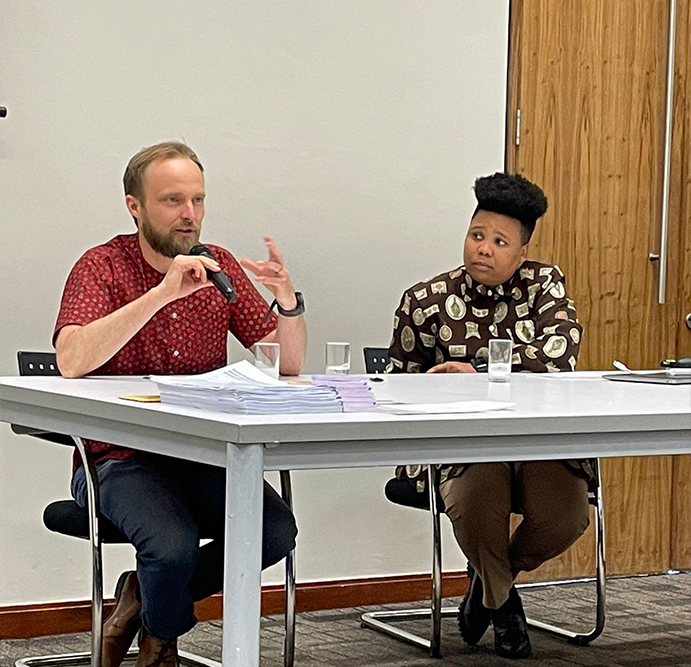
From left to right: Stephen Taylor and Nangamso Mtsatse
At the larger system level, Martin Gustafsson (DBE and RESEP) considered how system improvement relates to improved accountability which is supported through appropriate data use (download slides). Luis Crouch, in a wider topic around improving learning and tackling learning inequity, then pointed to the power of political will to set in motion the conditions for learning advancement and equitable learning, drawing from examples in Japan and South Korea.
Learning enhancements could also benefit from improving the preparedness of children entering schooling. With the function shift of Early Childhood Development to the Department of Basic Education in 2022, Servaas van der Berg considered how we are at a useful juncture to reevaluate how much financing is allocated to ECD. Against this context, Jesal Kika-Mistry (RESEP, SU & World Bank) and Elizabeth Ninan (World Bank) presented key findings from a public expenditure and institutional review (PEIR) for early childhood development (download slides).
Whether presentations were highlighting problems or considering what to do about them, one key feature underpinned them all: the appropriate use of data to shine light on what needs attention and careful interpretation of findings that lead to solutions. The data shown in most cases was the result of collaboration between government, research, and funders.
We acknowledge the generous funding for the conference from the Michael and Susan Dell Foundation, the Allan and Gill Gray Philanthropy and FEMEF, and the time given by all that attended.
The conference programme is available for download here.





